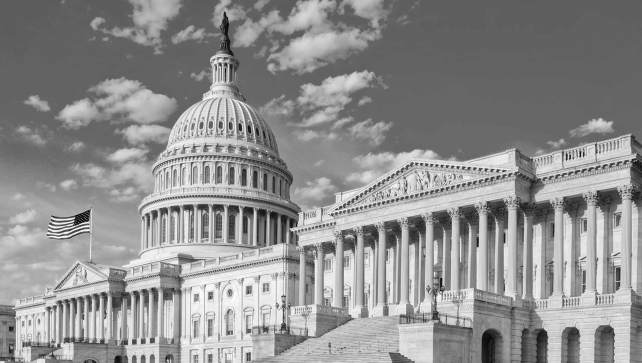
By Jeremy Tillman
The Army Congressional Fellowship is a unique opportunity to gain strategic perspective and hone your understanding of legislative affairs. Unfortunately, the perception that broadening assignments are negative propagate in small Army circles today. Many leaders claim that company and field grade officers should avoid taking professional risks with timelines. Instead, they should follow a well-trodden path of tactically focused assignments. But does this path help develop future operational and strategic leaders? In George Fust’s clever and recent article, Broadening Assignments Are The New Black, he contends “In an increasingly complex world, the Army needs well-rounded leaders who can leverage a broad array of experiences to develop solutions.” A leader may dissuade you from pursuing a broadening opportunity for a number of reasons that may include professional timelines, personal goals, or unit requirements. However, the Army Congressional Fellowship is a unique opportunity that broadens leaders through advanced civil schooling, teamwork at the strategic level of government, and experience working on relevant defense legislation that impacts the Army.
What is it?
The Army Congressional Fellowship is a 44-month program that includes pursuing a Master of Professional Studies Degree in Legislative Affairs at George Washington University, serving as a Fellow for a Member of Congress, and fulfilling a utilization tour on the Army Staff in a congressional-related duty position.
Prior to this opportunity, my only knowledge of how our Congress works came from a School House Rocks song and a civics class or two. Although I doubted my abilities, the knowledge and skills I gained from previous developmental assignments and great teams provided me with the tools to successfully navigate this assignment. I found that Dr. Steven Billet, the former Director of GWU’s Legislative Affairs program, was correct when he wrote, “The Legislative Affairs Program’s emphasis on the development of applied political skills enhances the Fellow experience during their year on Capitol Hill. This puts them in a position to be meaningful contributors during their Hill deployment while they develop an abiding appreciation of the legislative arena.”
The Capitol Hill experience is fascinating. The nation’s elected officials enable, shape, and procure resources for the Army. Assigned to a Member of Congress’ staff, you’re witness to the creation of national policy. During my tour, I was a staff member for Congressman Joe Wilson from South Carolina, and the staff immediately integrated me into the team. As Congressman Wilson is a Senior Member of the House Armed Services Committee and House Foreign Affairs Committee, I enjoyed working on defense and non-defense matters. The experience heightened my appreciation for what Members and their staff do for America.
During the utilization phase, Fellows transition from working on a Member’s staff to an Army legislative liaison assigned to the Office of the Chief, Legislative Liaison (OCLL). Within OCLL, there are seven divisions collaborating to enhance congressional trust and confidence in order to gain required authorities and resources that support the Army. I am excited to work in the Senate Liaison Division because they serve as the primary link between Senators, their personal staff, and legislative committees to OCLL and the Army Senior Leaders.
Opportunity.
This assignment will make you a better officer and sharpen your communication skills. As a GWU graduate student, I sharpened my research and communication competencies through an aggressive academic program. While augmenting a congress member’s staff, I learned to confidently work with members of Congress, their staff, and senior leaders within the Department of Defense. Under the supervision of the Military Legislative Assistant or Legislative Director, I drafted legislation, talking points, House floor speeches, and Congressional Committee Hearing opening statements and questions.
Some days, I found myself conducting in-depth research on current defense issues. My research included a variety of challenges to include cybersecurity protections, body armor for females, developments for military aircraft, reforms to support military families, changes to military housing, childcare options at military installations, or ways to better assist Veterans. The opportunity to be involved in issues of national defense make this fellowship both personally and professionally rewarding and allows candidates to continue to sharpen their knowledge and understanding of the profession of arms.
When considering whether to compete for the Congressional Fellowship, it’s important to regard your professional timeline, requirements, and goals. A 44-month program is a long time to be away from the operational Army. Therefore, it’s incumbent upon you to professionally develop yourself while away. In addition to my current assignment, I make a concerted effort to lean into self-development. I use the time I spend on public transportation to stay abreast of military doctrine, lessons learned from various training centers, reading, or listening to military blogs.
The exposure and self-development fellows gain from the Army Congressional Fellowship is priceless. The Congressional Fellows program prepares officers to calmly and collectively work through complex issues with diverse groups and affords Congressional Fellows broadening at the strategic level. The experience, knowledge, skills, and relationships gained in this assignment benefit the officer, the Army, and, ultimately, Soldiers and Families. If you want a challenging yet rewarding experience from a unique strategic perspective, I encourage you to apply to this great opportunity.
